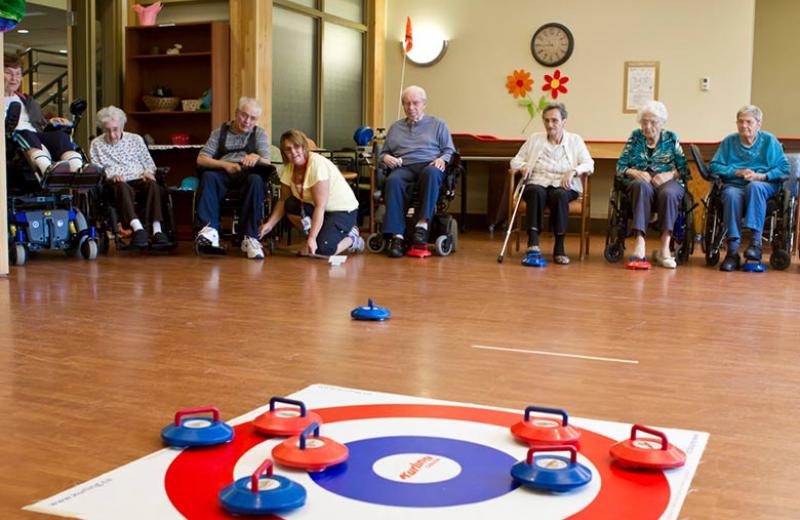February is Therapeutic Recreation month, and although I don’t currently work in the field, I am very proud to have focused my education and first part of my career on this helping profession. Not many people are familiar with Therapeutic Recreation, also known as Recreation Therapy; it has been confused with such things as sports medicine and physiotherapy, but also has been shrugged off as simply any activity to combat boredom. Let me set the record straight on that, because Recreation Therapists are working non-stop to provide programs that are purposeful and goal-oriented down to an individual level.
"Therapeutic Recreation is defined as “a health care profession that utilizes a therapeutic process, involving leisure, recreation and play as a primary tool for each individual to achieve their highest level of independence and quality of life” (CTRA, 2017).
Recreation Therapists can be found in a variety of settings, including:
- Assisted living/seniors’ housing
- Long term care
- Children’s hospitals
- Mental health services
- Rehabilitation centres
- Day centres
- Private practice
- …and many more.
Therapeutic recreation is a holistic approach to health
One of the things that (in my mind) makes therapeutic recreation a unique and special field is its truly holistic approach to health. While many health care professions tend to be very targeted to one aspect of a patient’s health, recreation therapy works to improve the health of the person as a whole; they may focus on physical needs, but they may pay just as much attention to the emotional, cognitive, social, and/or spiritual needs that make up a person’s overall quality of life.
Benefits of therapeutic recreation programming
There are many benefits related to taking part in physical programming. Many chronic disease symptoms can be avoided, delayed, or better managed through physical activity. Working on maintaining or improving core strength and balance can help reduce the risk of falls. It’s also important to note that the benefits of participating in a physical program extend beyond the obvious goal of maintaining or increasing physical function. Participants may realize they’re gaining social connections as a result of taking part in physical programming as part of a group; they will likely experience a mood boost following participation; realizing they are capable of more than they were previously (or had expected to be) can also do much to bolster confidence and self-esteem.
I was able to catch up with a local Recreation Therapist, Jaymee Webster, to get her perspective on the benefits of therapeutic recreation programming in her work settings of inpatient rehabilitation unit and outpatient geriatric rehabilitation day program.
“Often when individuals are engaged in all aspects of the rehabilitation process they have better outcomes. Through recreation and physical activity our patients have the opportunity to see their progress from other therapies translate to meaningful engagement. For example, an individual working on regaining strength in the upper extremities feels a sense of accomplishment when they are able to score points in a game of floor curling.”
If you know or work with a Recreation Therapist or team providing therapeutic recreation programs, take a moment this month to watch them at work. Their creativity and passion for working to improve the lives of others at an individual level are truly inspiring.














Comments